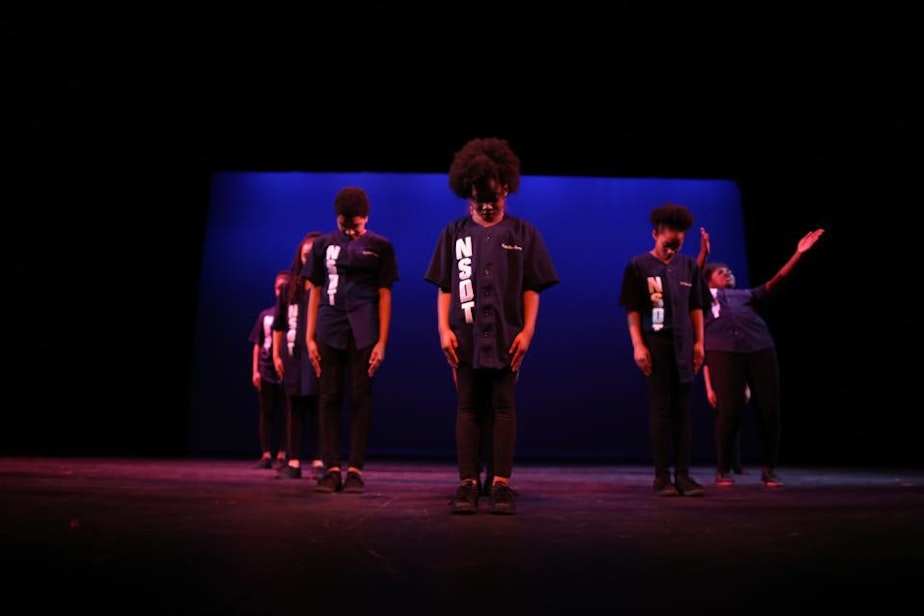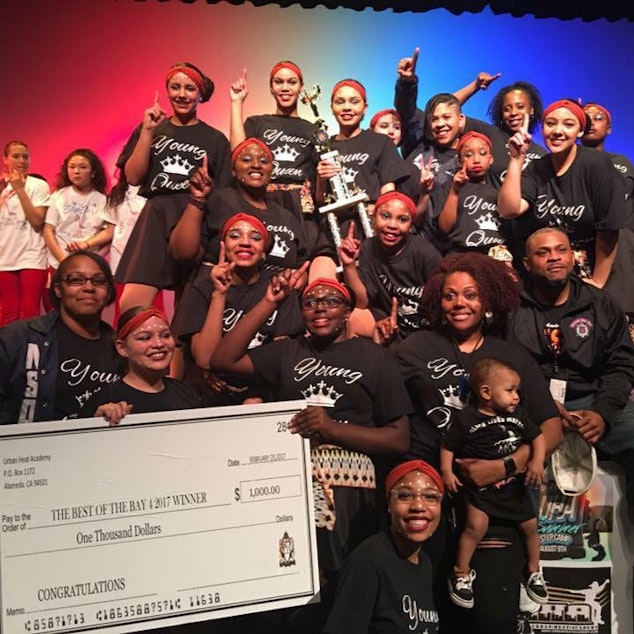Step sisters: The dance team that stood up for Black Lives Matter

Darnesha Weary describes step dancing as “creating music and rhythms and beats with every part of your body.”
She directs the Northside Step Dance Team in Shoreline, and last year, her team used their dance routine to protest the police shootings of unarmed black people.
Step dancing has a rich cultural history.
It became popular in the United States in the early 1900s at historically black colleges and universities. But it started even farther back. “It started historically back in Africa with certain tribes using it, and then through slavery as a way of communication, so there’s a lot of call and response,” Darnesha said.
The Northside Step Dance Team performed a Black Lives Matter piece at a step competition in 2017. At competitions, groups often perform dances dressed as astronauts, superheroes, or different kinds of characters. But last year’s competition was different.
The group was influenced by news reports of unarmed black people killed by police, including Tamir Rice, Walter Scott, and Eric Garner.
“It was horrible,” Darnesha’s daughter and Northside dancer, Mikayla, said. “We just listened and watched. We saw what’s happening in our community, and we just wanted to do something that actually is meaningful.”
Sponsored
Mikayla said that doing something was important for the girls because they live in a predominantly white community where it can be hard to speak up.
“In Shoreline,” she said, “we’re kind of outnumbered here, and sometimes it feels like you’re not really being heard.”
Darnesha choreographed the dance to depict the history of African Americans.
“The choreography started in Africa,” Darnesha said, “and we talked about Africa being our motherland and that we were raised as kings and queens. The story goes into slavery, how that history was taken and stripped from us, into the current time where we are reclaiming who we are.”
On competition day, the team was nervous. “We had stunts and stuff like that," Mikayla said, "but it was more the theme, how are they going to take our theme?”
Sponsored
But when they got on stage, their worries went away.
“That was probably the only show I have ever seen the performers — when they walked off everybody was in tears,” Darnesha said. “I could tell they were holding it back on stage because they just really got emotionally attached to it.”
The team won first place at competition, but for the girls, the performance meant more than just winning.
Sponsored
Stepper Nataisia Hambridge loved how she could connect with her community by sending a message: “The whole message behind Black Lives Matters is every life matters, and that means my life matters, my teammates’ lives matter, my family matters.”
For eight-year-old dancer Cedella Dean, the performance was empowering. “When I’m around my step group and step friends, step sisters, I feel strong. I feel that I’m beautiful and strong and that I can do anything I want to do.”
The girls plan to do new routines that send a message about issues like girl power and anti-bullying.
Northside Step has created a community of sisters who are able to use a historic dance as a way to step up and be heard.

Sponsored
This story was created in KUOW's RadioActive Intro to Journalism Workshop for 15- to 18-year-olds at Jack Straw Cultural Center, with production support from Ann Kane. Edited by Jill Jackson.
Find RadioActive on Facebook, Twitter and Instagram, and on the RadioActive podcast.

